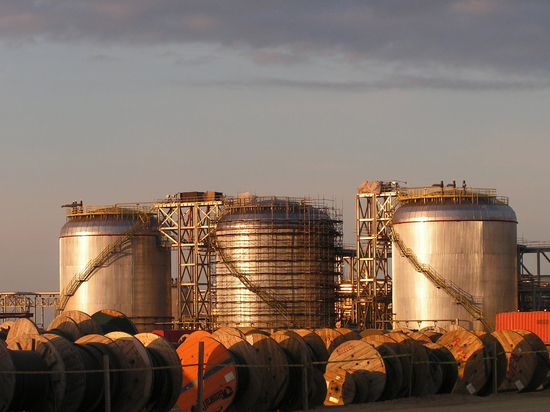Japan refused to exchange Russian oil for Western sanctions
[ad_1]

Tokyo to retain stake in Sakhalin fields
Tokyo is not going to abandon Russian mining projects on Sakhalin, even though the Kremlin has put Japan on the list of unfriendly states. For the Land of the Rising Sun, the “high value” of the Far Eastern deposits is much more important than the geopolitical disagreements with Moscow initiated by Europe and the United States. In contrast to Western corporations hurriedly fleeing from Russian assets, the pragmatic Japanese intend to significantly save on the purchase of energy resources at the expense of Sakhalin oil and gas and avoid the fuel starvation that threatens other Western importers.
The decision to retain a stake in the Sakhalin-1 oil and gas project was made by Tokyo immediately after President Vladimir Putin signed a decree prohibiting investors from “unfriendly” countries from any transactions with stakes in domestic strategic companies. The number of states that Moscow has ceased to consider allies includes, among other things, Japan.
“This means that we must stop trading shares in Sakhalin-1 with third parties and countries. We will adhere to our current policy, so the situation will not change,” said Japanese Economy Minister Koichi Hagiuda, adding that 90% of his power’s oil imports come from the Middle East, so Russia remains a “valuable source” of energy purchases outside of traditional resource regions. Literally a few days earlier, with a similar appeal, the Japanese authorities addressed national companies participating in another Far Eastern project, Sakhalin-2, asking their investors to continue their work there. On this issue, Hagiuda noted, Tokyo’s position also remains unchanged.
Thus, representatives of the Land of the Rising Sun remained, in fact, the only foreign participants in oil and gas development on the Russian shelf of the Sea of Okhotsk. In particular, the American ExxonMobil, which until recently acted as the operator of Sakhalin-1 with a 30% share, announced back in early March that it was withdrawing from the project, estimating its losses due to the loss of the asset at $4.6 billion. In turn, the Anglo-Dutch Shell announced the sale of 27.5% in Sakhalin II, which is focused on the production of liquefied gas, to Chinese companies, while complaining that such an unplanned deal is unlikely to recoup its $5 billion investment.
According to the head of the analytical department of AMarkets Artem Deev, unlike Europe, Russian fields are not the main supplier of energy resources to Japan. For example, deliveries of Sakhalin LNG do not exceed 9% in the energy consumption structure of an Asian country. “However, Far Eastern projects are just beginning to develop and have great potential. For Tokyo, the import of hydrocarbons from fields located on the shelf of the Sea of Okhotsk is optimal: convenient and guaranteed logistics, and, unlike supplies from the USA or Australia, much cheaper. In this regard, despite political sanctions, Japan, for the sake of economic interests, will continue to participate in the development of Sakhalin, in exchange providing the Russian mining industry not only with investment support, but also with modern technologies,” the expert explains. In his opinion, such a position of Tokyo is doubly valuable, since in the future the technological factor threatens to become a serious problem for domestic producers of raw materials: our country is experiencing a serious shortage of its own technological solutions in the field of drilling and development of hydrocarbon deposits.
Nikolai Vavilov, a specialist in the strategic research department at Total Research, agrees with this opinion, who believes that the loss of Sakhalin projects, although not critical for Japanese industry, will reduce the possibility of diversifying and securing energy supplies in case of force majeure, such as the Fukushima accident. “. In addition, Japanese investors would suffer financial losses comparable to those already suffered by Western companies that have given up Russian assets.
Newspaper headline:
Oil is more expensive than sanctions
[ad_2]
Source link






